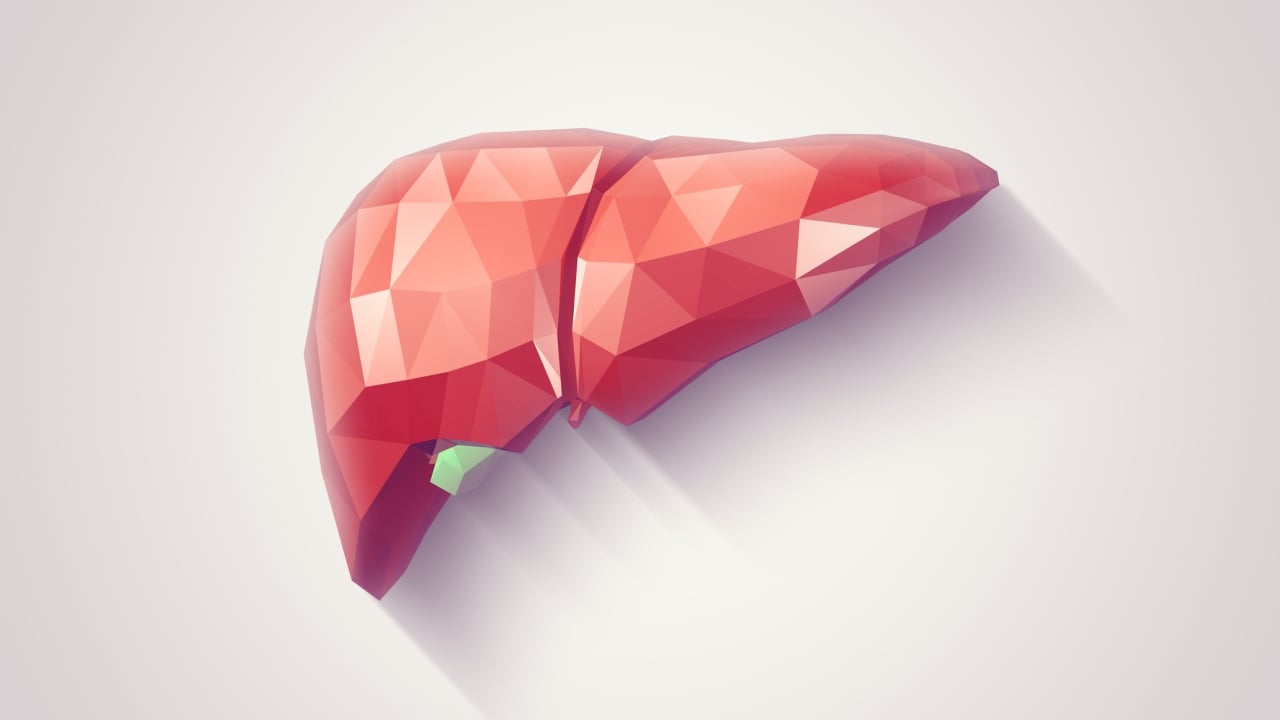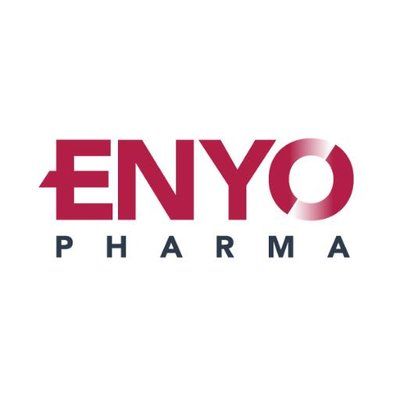Request Demo
Last update 08 May 2025
Nonalcoholic Steatohepatitis
Last update 08 May 2025
Basic Info
Synonyms Fatty Liver Disease, MASH, NASH + [20] |
Introduction Fatty replacement and damage to the hepatocytes not related to alcohol use. It may lead to cirrhosis and liver failure. |
Related
851
Drugs associated with Nonalcoholic SteatohepatitisTarget- |
Mechanism- |
Active Org. |
Originator Org. |
Active Indication |
Inactive Indication- |
Drug Highest PhaseApproved |
First Approval Ctry. / Loc. United States |
First Approval Date25 Mar 2025 |
Target |
Mechanism GLP-1R agonists |
Active Org. |
Originator Org. |
Active Indication |
Inactive Indication- |
Drug Highest PhaseApproved |
First Approval Ctry. / Loc. China |
First Approval Date24 Jan 2025 |
Target |
Mechanism PPARδ agonists |
Active Org. |
Originator Org. |
Active Indication |
Inactive Indication |
Drug Highest PhaseApproved |
First Approval Ctry. / Loc. United States |
First Approval Date14 Aug 2024 |
1,197
Clinical Trials associated with Nonalcoholic SteatohepatitisNCT06352177
Efficacy of a Novel Digital Therapeutic Lifestyle Intervention Program for Patients with MASLD
The ENLIGHTEN study that will evaluate the efficacy of a novel DTx lifestyle intervention in participants with non-cirrhotic MASH. People who have MASH, the progressive subtype of MASLD, have the highest risk for liver disease progression and poor outcomes, including cirrhosis and hepatocellular carcinoma, and greater overall mortality. Thus, these participants are expected to experience the greatest benefit from treatment.
This is a randomized, controlled trial comparing DTx lifestyle intervention in participants with non-cirrhotic MASH to standard clinical care. The study includes a screening period (up to 2 wks.) followed by randomization, 52-wk treatment period and 12-wk follow-up period (total duration up to 64 wks.).
This is a randomized, controlled trial comparing DTx lifestyle intervention in participants with non-cirrhotic MASH to standard clinical care. The study includes a screening period (up to 2 wks.) followed by randomization, 52-wk treatment period and 12-wk follow-up period (total duration up to 64 wks.).
Start Date01 Sep 2025 |
Sponsor / Collaborator |
NCT06923215
The Role of Estimated Glucose Disposal Rate as a Metric for Detection of Metabolic Associated Fatty Liver Disease and Its Severity in Patients With Metabolic Syndrome.
A 12-month prospective observational cohort study assessing eGDR's utility in diagnosing MAFLD (via FibroScan® CAP ≥248 dB/m) and correlating it with steatosis/fibrosis severity. Secondary aims compare eGDR to FLI/FIB-4 scores and identify optimal diagnostic cut-offs
Start Date30 Jul 2025 |
Sponsor / Collaborator |
NCT06939816
A Study to Assess the Effect of Vonafexor on Kidney Function in Subjects With Impaired Renal Function and Suspected MASH
This study is designed to establish the effect of 2 doses of vonafexor on the kidney. This will be investigated in subjects with mild or moderate reduced estimated glomerular filtration rate (eGFR) and suspected MASH. In addition, the non-invasive multiparametric magnetic resonance imaging assessment of functional and structural changes in the kidney and in the liver will be investigated.
Start Date01 Jul 2025 |
Sponsor / Collaborator |
100 Clinical Results associated with Nonalcoholic Steatohepatitis
Login to view more data
100 Translational Medicine associated with Nonalcoholic Steatohepatitis
Login to view more data
0 Patents (Medical) associated with Nonalcoholic Steatohepatitis
Login to view more data
17,882
Literatures (Medical) associated with Nonalcoholic Steatohepatitis31 Dec 2025·Virulence
Gut microbiome composition and metabolic activity in metabolic-associated fatty liver disease
Article
Author: Li, Da ; Chen, Shiju ; Zhu, Xuli ; Bai, Feihu ; Chen, Jinrun ; Zhang, Daya ; Wang, Qi
31 Dec 2025·Journal of Medical Economics
Noninvasive tests and diagnostic pathways to MASH diagnosis in the United States: a retrospective observational study
Article
Author: Gbadamosi, Semiu O. ; Evans, Kristin A. ; Hoovler, Anthony ; Brady, Brenna L.
01 Dec 2025·Current Cardiology Reports
Metabolic Dysfunction Associated-Steatotic Liver Disease (MASLD) and Cardiovascular Risk: Embrace All Facets of the Disease
Review
Author: Katsiki, Niki ; Vrablik, Michal ; Kolovou, Genovefa
3,549
News (Medical) associated with Nonalcoholic Steatohepatitis02 May 2025
Madrigal Pharmaceuticals’ fatty liver disease drug Rezdiffra generated $137 million in sales during the first quarter of 2025, well above analysts’ consensus expectation of $112 million.
Since its historic FDA approval in March 2024 as the first medication for the treatment of the prevalent liver disease metabolic dysfunction-associated steatohepatitis (MASH), Madrigal Pharmaceuticals’ Rezdiffra has handily beat Wall Street’s sales projections for the fourth straight quarter.On a roll, Rezdiffra generated $137 million in sales during the first quarter of 2025, well above analysts’ average expectation of $112 million. The haul also marked a sequential increase from the fourth quarter’s $103 million, which also beat consensus, bringing the drug’s sales in the first 12 months on the market to $317 million.“By any measure, this is an exceptional launch,” Madrigal CEO Bill Sibold said on an investor call Thursday.“Importantly, the Rezdiffra launch continues to be driven by strong underlying patient demand,” Leerink Partners analysts wrote in a Thursday note.As of the end of March, more than 17,000 MASH patients were actively taking Rezdiffra, compared with more than 11,800 at year-end 2024, according to Madrigal. Rezdiffra’s speed of adding new patients matches that from other top-tier specialty launches, Sibold said.The launch is still at an early stage, as Madrigal is targeting 315,000 patients who fall under Rezdiffra’s FDA-approved label and are currently treated by the company’s target prescribers. Among the 6,000 top MASH prescribers targeted by Madrigal, 70% have prescribed Rezdiffra, Sibold said. Before Rezdiffra’s approval, investors were worried that the FDA would require patients to undergo a liver biopsy to determine treatment eligibility. Now that the drug’s label doesn’t require that test, a potential restriction by payers has become a new investor concern.A key opinion leader in the MASH field—who leads the fatty liver clinic at an academic center in California that takes care of about 3,000 MASH patients—recently told Leerink that he has not encountered a single payer requiring liver biopsy before granting access to Rezdiffra.The expert indicated that 90% of his patients have remained on Rezdiffra after a year of treatment, with a small percentage of discontinuations related to tolerability or lack of treatment response, according to a Leerink note on Thursday.In what Sibold described as a standard move for medicines, payers may require reauthorization of Rezdiffra after a year of treatment based on a patient’s performance. The company doesn’t see that as an issue, he said, as physicians’ feedback so far suggests the drug's efficacy has exceeded expectations.“Physicians and patients continue to highlight meaningful improvements they see on the efficacy measures that matter most to patients such as liver stiffness, liver fat, liver enzymes, LDL and triglycerides,” Sibold said on the call.Competition may be coming, though, potentially first in the form of Novo Nordisk’s formidable GLP-1 semaglutide later this year.Novo is targeting a market that’s “multiples” the size of Madrigal’s target population of 315,000 patients, Sibold noted. Given that Rezdiffra has only penetrated 5% of its own target population, Madrigal still sees “years of growth” ahead, he said.About 25% of Rezdiffra takers are already on a GLP-1 product, Sibold noted, suggesting that there’s still a need for other MASH treatments despite the GLP-1 drugs having been around for more than a decade, albeit not specifically for MASH.Semaglutide is “only going to accelerate diagnosis and add to that” target, Sibold added, suggesting Novo will expand the market to the benefit of Madrigal as well. Putting potential geographic market expansion in its own hands, Madrigal is expecting a regulatory opinion from the European Medicines Agency and subsequent EU market authorization in mid-2025. The company plans to launch first in Germany in the second half of the year.While Rezdiffra is currently approved for stage F2 and F3 non-cirrhotic MASH, also known as nonalcoholic steatohepatitis (NASH), Madrigal is also aiming to unlock the F4 cirrhotic population.The company will present detailed two-year data from the compensated MASH cirrhosis arm of the phase 3 Maestro-NAFLD-1 trial next week at the European Association for the Study of the Liver Congress. Outcomes data from the large Maestro-NASH Outcomes trial in compensated cirrhosis are expected in 2027.The expansion to F4 cirrhosis is “a key pillar of our long-term NASH leadership strategy,” Sibold said, noting that the indication could double Rezdiffra’s market opportunity.

Drug ApprovalPhase 3
02 May 2025
SINGAPORE, May 1, 2025 /PRNewswire/ -- HistoIndex, known for its groundbreaking biophotonic Second Harmonic Generation (SHG) technology and a pioneering leader in Artificial Intelligence (AI) digital pathology for the management of fibrotic diseases, has announced the close of a S$9 million investment round to support its next phase of expansion. OCBC, the longest established bank in Singapore and the second largest financial services group in Southeast Asia by assets, investing for the first time in a medical technology/healthcare company, leads the round with continued support from two existing shareholders - ZIG Ventures and SEEDS Capital, an investment arm of SG Growth Capital.
Daniel Kwan, Global Head of the Mezzanine Capital Unit at OCBC, said: "HistoIndex's groundbreaking technology has revolutionized liver disease diagnostics through cutting-edge AI innovations, and has the potential to enhance global healthcare by enabling precise and personalized patient care. We are proud to support this homegrown MedTech company with its growth plans and international ambitions."
With the increasing demand for routine clinical testing of Metabolic Dysfunction-Associated Steatohepatitis (MASH), particularly in liver biopsy assessment, this investment is focused on 1) expanding HistoIndex-partnered laboratories and operations within the US; and 2) developing next-generation AI-powered SHG digital pathology tests for MASH patients.
In line with this mission, HistoIndex has recently launched its very first Laboratory Developed Test (LDT), FibroSIGHT™ – now available for order in the US. FibroSIGHT™ is designed to empower clinicians with accurate and consistent liver fibrosis assessment1. The first in a pipeline of new product launches reaffirms HistoIndex's commitment to revolutionizing personalized treatment for MASH. By integrating research in pivotal clinical trials with clinical practice, the company is advancing precision medicine with the aim of improving patient outcomes worldwide.
"This investment plays an enabling role in positioning the company for strategic expansion within the US, while accelerating the adoption of advanced digital pathology solutions poised to transform MASH diagnosis and treatments." said Dr. Gideon Ho, Chief Executive Officer of HistoIndex.
About MASH
Metabolic dysfunction-associated steatohepatitis (MASH) is a progressive form of Metabolic dysfunction-associated steatotic liver disease (MASLD) characterized by steatosis and inflammation, which can lead to fibrosis (scarring), cirrhosis, liver failure, and an increased risk of liver cancer. The presence of ballooned hepatocytes (enlarged and damaged liver cells) is a key feature distinguishing MASH from simple steatosis. Pathologist assessments of liver biopsy remain the gold standard for diagnosing and assessing the severity of MASH. Histological categorial scoring systems are often used as surrogate endpoints to evaluate drug efficacy in clinical trials. These endpoints are limited in capturing the complex and heterogeneous nature of the disease. As a result, there is a growing need for more accurate and reliable tools, such as AI-based digital pathology solutions, to improve the assessment of treatment response and disease severity in MASH.
About HistoIndex
Founded in 2010, HistoIndex pioneers in stain-free, fully automated imaging solutions for visualizing and quantifying fibrosis in biological tissues. By combining cutting-edge biophotonic technology with AI-based analysis, HistoIndex provides innovative tools to improve the assessment of fibrosis changes and drug efficacy. HistoIndex's breakthrough digital pathology solutions are currently used in accelerating clinical research, expediting pharmaceutical drug development, and transforming medical standards.
References:
1.
SOURCE Histoindex Pte. Ltd.
WANT YOUR COMPANY'S NEWS FEATURED ON PRNEWSWIRE.COM?
440k+
Newsrooms &
Influencers
9k+
Digital Media
Outlets
270k+
Journalists
Opted In
GET STARTED
01 May 2025
GAITHERSBURG, Md., May 01, 2025 (GLOBE NEWSWIRE) -- Altimmune, Inc. (Nasdaq: ALT), a late clinical-stage biopharmaceutical company developing next-generation peptide-based therapeutics for liver and cardiometabolic diseases, today announced that the Company will present analyses of pemvidutide-treated subjects with metabolic dysfunction-associated steatotic liver disease (MASLD) utilizing the MASH Resolution Index (MASHResInd; Loomba 2024), a highly sensitive non-invasive measure of MASH histologic response, in a poster session at the European Association for the Study of the Liver (EASL) International Liver Congress™ 2025 in Amsterdam, The Netherlands. The abstract will be featured in the conference poster session and poster tour.
Details of the presentations are as follows:
Session: MASLD: Therapy, Track Hub 7 – Metabolism, Alcohol, and Toxicity (Poster# SAT-453) Date/Time: Thursday, May 8, 2025, at 9:45 am CET
Session: MASLD Therapy Section (Poster# SAT-453) Date/Time: Saturday, May 10, 2025, from 12:00 PM to 1:00 PM CET
A copy of the poster will be accessible on the Events section of the Altimmune website.
About Pemvidutide Pemvidutide is a novel, investigational, peptide-based 1:1 GLP-1/glucagon dual receptor agonist in development for the treatment of obesity, MASH, Alcohol Use Disorder (AUD) and Alcohol Liver Disease (ALD). Activation of the GLP-1 and glucagon receptors is believed to mimic the complementary effects of diet and exercise on weight loss, with GLP-1 suppressing appetite and glucagon increasing energy expenditure. Glucagon is also recognized as having direct effects on hepatic fat metabolism, which is believed to lead to rapid reductions in levels of liver fat and serum lipids. In clinical trials to date, once-weekly pemvidutide has demonstrated compelling weight loss with class-leading lean mass preservation, and robust reductions in triglycerides, LDL cholesterol, liver fat content and blood pressure. The U.S. FDA has granted Fast Track designation to pemvidutide for the treatment of MASH. Pemvidutide recently completed the MOMENTUM Phase 2 obesity trial and is being studied in the ongoing IMPACT Phase 2b MASH trial. IND applications in AUD and ALD have received FDA clearance with Phase 2 trials to commence in mid-2025.
About Altimmune Altimmune is a late clinical-stage biopharmaceutical company focused on developing innovative next-generation peptide-based therapeutics. The Company is developing pemvidutide, a GLP-1/glucagon dual receptor agonist for the treatment of obesity, MASH, alcohol use disorder as well as alcohol related liver disease. For more information, please visit www.altimmune.com.
Follow @Altimmune, Inc. on LinkedIn Follow @AltimmuneInc on Twitter
Company Contact: Greg Weaver Chief Financial Officer Phone: 240-654-1450 ir@altimmune.com
Investor Contact: Lee Roth Burns McClellan Phone: 646-382-3403 lroth@burnsmc.com
Media Contact: Jason Spark Inizio Evoke, Biotech Phone: 619-849-6005 Jason.spark@canalecomm.com
This press release was published by a CLEAR® Verified individual.
Source: Altimmune, Inc
Phase 2Fast Track
Analysis
Perform a panoramic analysis of this field.
login
or

AI Agents Built for Biopharma Breakthroughs
Accelerate discovery. Empower decisions. Transform outcomes.
Get started for free today!
Accelerate Strategic R&D decision making with Synapse, PatSnap’s AI-powered Connected Innovation Intelligence Platform Built for Life Sciences Professionals.
Start your data trial now!
Synapse data is also accessible to external entities via APIs or data packages. Empower better decisions with the latest in pharmaceutical intelligence.
Bio
Bio Sequences Search & Analysis
Sign up for free
Chemical
Chemical Structures Search & Analysis
Sign up for free






